Do you feel stuck in your life, personally or professionally? Maybe you find yourself just going through the motions, living the same routine day in and day out. Living on autopilot can look and feel like a lot of different things, but it generally comes down to outsourcing too many parts of your life to automatic habits and routines.
Living on autopilot is essentially the opposite of intentional living – so you’re in the right place if you want to get out of this rut (and if you’re really excited about making some changes, keep on reading until the end of this post to get a free guide to intentional living).
For many people, this can be a result of “doing all of the right things”: getting a college degree, maybe a professional certification of some sort, and landing a job at a prestigious company. A successful start to a career by our societal standards, but if you’re anything like me, once you spend a few years at that “amazing” job, you realize it’s not what you actually want to be doing with your life.
For others, maybe it looks like starting a family and getting so ingrained in the routines of parenting that you forget to make time for your own interests and goals.
When we get into continuous patterns, our brains start to take over some of the more monotonous tasks. So when you do the same things over and over each day, good or bad, your actions start to become so habitual that you just do them without thinking.
This can be a great place to be if you’ve worked to build amazing habits that are aligned with your values and goals, but if you haven’t done that initial work, this “living on autopilot” is something you need to break free from if you’re going to make any meaningful change in your life.
If you find yourself stuck in a life on autopilot – don’t worry, it’s super common! A global study by Oracle found that over 75% of people feel stuck both personally and professionally, 23% of people feel disconnected from their own lives, and 27% feel trapped in “the same routine”. The study also found that the amount of people who feel like they have little to no control over their lives has doubled since the start of the pandemic.
Living on autopilot leads to feeling disconnected from what provides meaning in your life and can result in depression, stress, anxiety, and other mental disorders. If you or someone you know has fallen into this lifestyle, it’s important to take back control – here are 4 key steps on how to do just that.
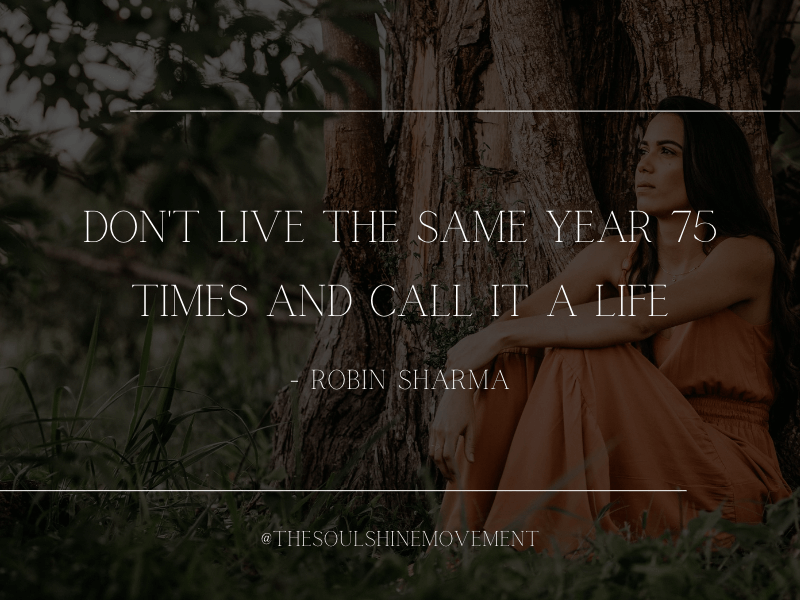
1. Reflect (and be honest with yourself)
We can’t make changes if we don’t recognize where the root cause of our problems are. All too often our schedules get so busy that we don’t pause to actually think about what we’re doing; we get into a rhythm of sorts. Even if it seems like everything is moving smoothly, if we’re not intentional with our time each day this can lead to taking actions that aren’t aligned with our values.
It’s okay (and I’d argue necessary!) to stop and just take a breath every now and then. Set aside a chunk of time to reflect on what’s going on in your life. The following are a few great areas to start with:
- Your career
- Your health
- Your relationships
How do you feel about where you’re at in each of these areas? Are you happy with your choices and how you show up for yourself? Are there any things you’d like to stop doing, start doing, or do differently?
Even if you’re not into journaling, find a pen and paper and write down how you feel. Dig deep, sit with your feelings, and be honest with yourself with where you are currently and where you want to be. Oftentimes uncovering the issues and getting comfortable with being uncomfortable can be the hardest part, so be kind to yourself throughout this process.
2. Identify Values & Set Goals
As we gain more responsibilities in adulthood, life can start to move pretty fast (if we let it). If you don’t actively stop to think about your values and goals, you’ll probably start to drift from the things that are really important to you, and before you know it you are years down a path that feels completely wrong for you.
Setting goals can be an amazing way to avoid living on autopilot and to make sure you’re aligning your actions with a meaningful outcome, but if we set goals before we identify our values they might be goals that don’t actually get us closer to the life we want to live.
For example: when I was finishing up college I had the goal of getting my CPA license (as most people who major in accounting do). I spent SO much time studying for those exams, got the license, and decided after three years working as a CPA that it was not the right career for me.
First identify your values to determine where you really want to invest energy in your life, and then set goals (that are aligned with those values). When you’re working on goals that are centered around your values, you’ll actively become more rooted into those values.

If you need help getting started with goal setting, head over to this post on The Ultimate Guide to Goal Setting.
Start off with small goals to start building confidence, and as you check a few of those off of your list, set some goals that will challenge you. Nothing so difficult that you will just become discouraged, but enough of a challenge that you’ll start to see real changes in your life and stay motivated to keep going.
Related Reading: 22 Examples of Personal Growth Goals
3. Build Better Habits
While there may be a variety of factors that lead to us living on autopilot, it really comes down to one thing: habits. Habits, good or bad, allow us to take actions in our lives without really thinking.
“Automaticity gives us the ability to perform everyday tasks independent of conscious control or attention. It frees up our cognitive reserves to think about other things beyond routinized daily behaviors, but it also perpetuates unhealthy habits related to diet, addiction, compulsive behaviors, and not getting enough exercise.”
What do you do immediately after you wake up in the morning? When you get home from or finish up work for the day? Before you go to bed?
If you wake up and feel the need to grab your phone and scroll through social media, this is a habit (and not a good one). Before you know it, you’ve wasted the first 30 minutes of your day. 30 minutes might not seem like a lot, but if you do that every day, that’s 3.5 hours of your week gone (and a lot more if you do this before bed too).
Determine what habits you have in your life that you’d like to change, and what habits you’d like to implement. If you’re a notorious morning scroller, find a habit that you can replace that with. We’re habitual creatures and ultimately come back to routine, so instead of just trying to stop, figure out something new you can be doing during that time instead.
Maybe you set your phone on the other side of the room before you go to sleep, and don’t allow yourself to touch it in the morning until after you’ve taken a shower and stretched or meditated for 10 minutes.
One key thing here is to start small: if you decide to try to replace this habit with a morning workout class halfway across town, you’ll probably be much less likely to consistently show up for that than to commit to 10 minutes of movement in your own home.
Choose small habits that support your goals. If you have a goal to write a book, and commit to writing for just 20 minutes each morning, you’ll be well on your way. As you build more consistency with your new habits, you’ll have a solid foundation to build on.
For fascinating research and tips around habits, I’d highly recommend checking out Atomic Habits by James Clear.
4. Incorporate Mindfulness Into Your Routine
Studies have shown correlations between mindfulness and feeling a sense of purpose, as well as efficacy in treating mental health issues like anxiety and depression.
Mindfulness, put simply, is the practice of bringing intentional awareness to the present moment. So often, we move between experiences in our lives so quickly that we never truly enjoy the present moment.
How would it feel to allow yourself the space to truly integrate your experiences? To slow down, just for a few minutes each day. Reflect on what went well in your day and what didn’t. Just bringing the conscious awareness to something that didn’t feel great in your day can allow you to make a different choice the next time you encounter a similar situation.
Find a mindfulness practice that works for you. Ideally, find a few minutes each day where you can slow down, focus on your breath, and take notice of your thoughts. If meditation isn’t your thing, that’s okay – maybe you just take the time to journal before you go to bed each night.
Whatever mindfulness looks like to you, in addition to observation, be sure to incorporate reflection into your practice as well. Write down whatever comes up, and use your reflections to make mindful changes in your everyday life.
Related Reading: How To Take Your Life to the Next Level Now with a Mindfulness Practice
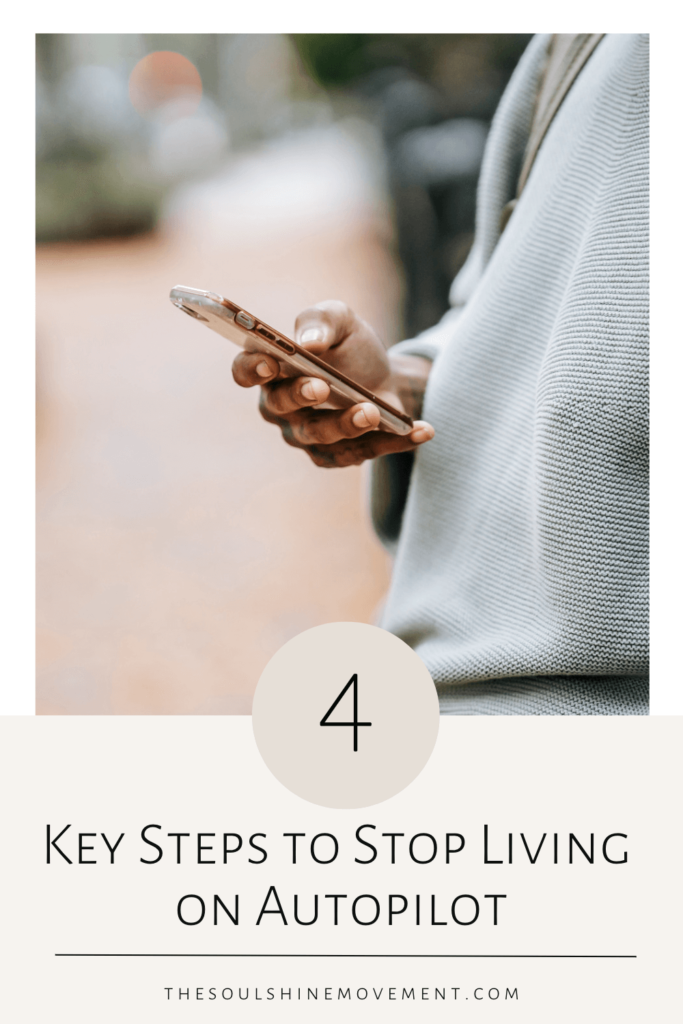
Final Thoughts
Living on autopilot is essentially the opposite of intentional living, which is the primary focus of The SoulShine Movement. Most of us fall into autopilot at some point during our lives – the key is to be able to recognize when this is happening and make intentional changes.
Ultimately, the further you allow yourself to drift, the more disconnected you’ll feel from yourself and others. When you find yourself constantly just taking the path of least resistance, start to question your habits and instead begin making conscious choices about even the littlest things in your day.
If you’re ready to stop living on autopilot, grab our free Intentional Living Guide.
This guide will help you gain clarity in what you want out of life and how to get started on making that your reality.
Do you feel like you can relate to “living on autopilot”? What changes are you going to make to be more intentional with your life?


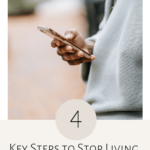
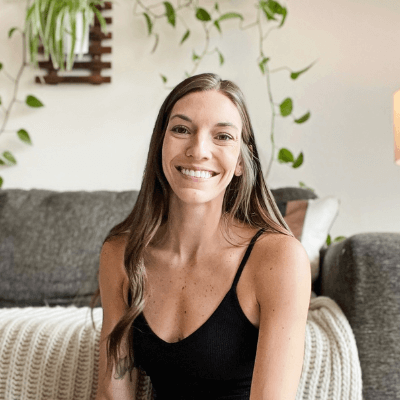





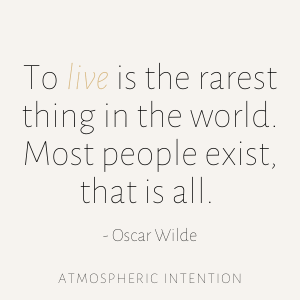
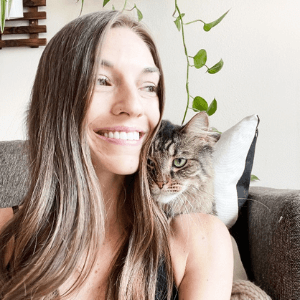
This is so true, all of it. Wonderfully written, so many excellent tips that I am going to utilize. Journaled many years ago and it was helpful – but stopped for no apparent reason – except most likely from being on autopilot.
I look forward to continuing to read, learn and absorb much more from this extraordinary website.
Thanks Clair!
Glad you’ve found some value in the post!! Hope you find your way back to journaling 🙂